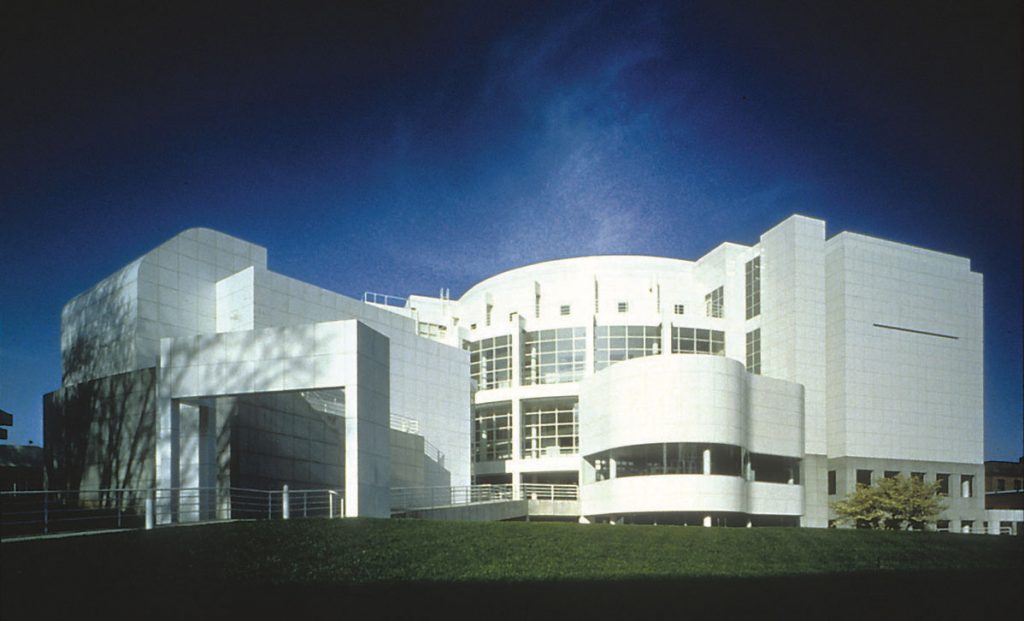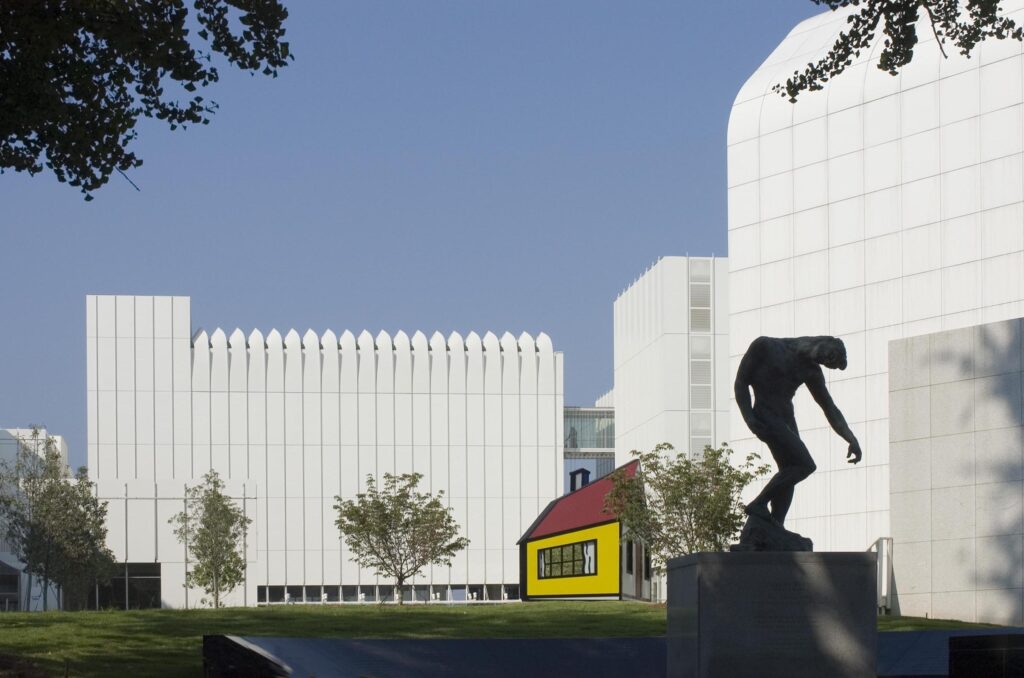High Museum of Art High Museum of Art Interior
Located in Midtown Atlanta, the High Museum of Art is one of the well-nigh of import art museums in the Southeast. Its permanent collection of more than eleven,000 objects includes a range of significant works by nineteenth- and twentieth-century American artists, a highly respected collection of American decorative arts from 1825 to 1917, notable European holdings in paintings and prints, and growing collections of modernistic and contemporary art, photography, African art, and works by African Americans. The High is also committed to acquiring objects by southern artists as well as by folk and cocky-taught artists.

Courtesy of High Museum of Art
The High was established in 1905 as the Atlanta Art Clan. In 1926 Harriet Harwell Wilson High donated her family'due south Peachtree Street residence to be used every bit a museum, and the association was renamed in her laurels. By 1955 the collection had outgrown the High mansion and was moved to a new brick edifice adjacent to the house. Despite Atlanta'south general ambivalence toward the fine arts at midcentury, the High grew steadily, albeit slowly, thank you to several generous bequests and gifts. In 1962 tragedy drew attention to Atlanta'south cultural life—during a museum-sponsored tour, 106 Georgia arts patrons died in the Orly air crash near Paris, France. The Atlanta Arts Alliance was formed in honor of the victims, and in 1968 the Atlanta Memorial Arts Eye opened.
Growth continued, and in 1979 Coca-Cola executive Robert Woodruff proposed a challenge grant of $7.5 million for the construction of a facility exclusively for the High. Asked past fund-raisers to "help build a museum big enough for Atlanta," the citizenry responded, and the High raised $20 million. The first curators were hired in 1980, and construction began the post-obit year on a white postmodern building designed by the architect Richard Meier.

Courtesy of High Museum of Art
The building, which opened in 1983, tripled the infinite of the Loftier's previous home and rapidly garnered praise; the building'due south gracefully curved façade on Peachtree Street became an Atlanta landmark. Its four-story atrium, surrounded by a spiraling ramp and capped by skylights, was inspired by Frank Lloyd Wright's modernist design of the Solomon R. Guggenheim Museum in New York City. Key features of Meier's design include such stiff architectural elements equally the soaring atrium; an accent on modernist planes, curves, and lines; and galleries inside galleries. The sculptural quality of the High's interior is enhanced past the play of light and shadow reenacted daily in the atrium. In 1984 the American Institute of Architects (AIA) gave it the Honor Award, architecture'south highest recognition for excellence in pattern. In 1991 the AIA cited the museum building as "1 of the ten best works of American architecture of the 1980s," and in 2005 it was honored in a U.S. Mail service stamp series, "Masterworks of Modern Compages."
In 1992 the museum received a Governor's Award in the Humanities.
A $124 million expansion to the High added three new buildings in 2005, more than doubling the gallery space to 93,800 foursquare feet and allowing for larger-scale installations. The striking contemporary buildings, designed by acclaimed architect Renzo Pianoforte, melded with the Meier construction and the Memorial Arts Middle, forming what Piano chosen a "village for the arts." A European-style piazza fosters a sense of enclosure and gives midtown Atlanta a much-needed public space. The expansion also provides room for additional educational programming, a restaurant, and authoritative offices.

Photo past Jonathan Hillyer
Similar other fine-art institutions, the High is continually refining its permanent drove. This dynamic institution has forged a twenty-first-century model for museum operations that includes collaborations with international institutions, ongoing relationships with major collectors, and high-profile exhibitions. The museum's strategies for drove-building and exhibition development include focusing on more-affordable collecting fields, such as photography, folk and self-taught art, and gimmicky art, and devoting substantial attention to exhibitions of mod and contemporary art and to shows organized from important collections.
Source: https://www.georgiaencyclopedia.org/articles/arts-culture/high-museum-of-art/